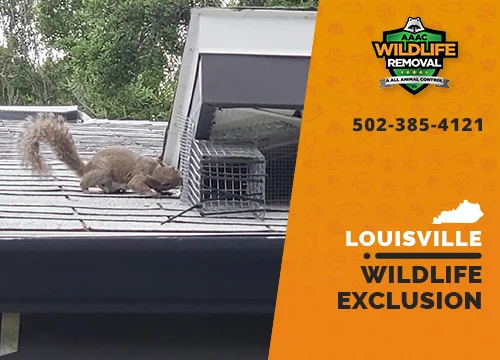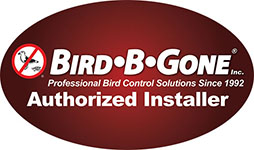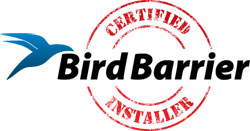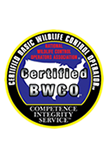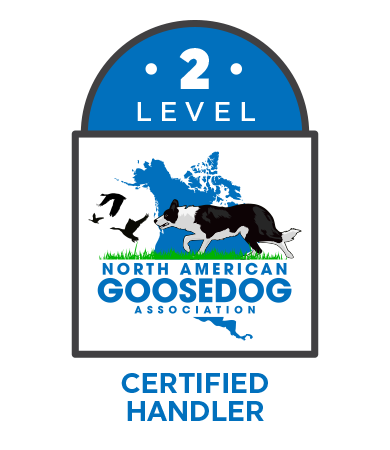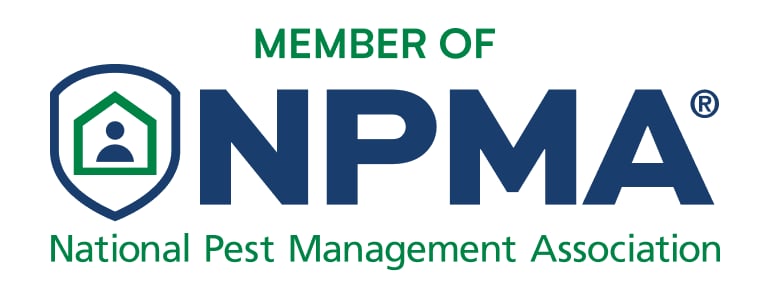
What is Wildlife Exclusion?
Exclusion involves sealing animal entry points to your home or business in a way that keeps the critters from getting back inside. It’s much easier than trying to exclude wildlife all by yourself.
AAAC Wildlife Exclusion Services provides humane removal services for wildlife that pose a threat to your business or home. Our exclusion experts are well-trained to safely and accurately complete the task.
We can help with animals living under or around your building’s walls. We will seal any animal entry points we find. These include holes in floors, cracks around pipes, and anything else that could allow an animal to enter your home or business.
How we conduct wildlife control and exclusion services
If you’re considering trapping and possibly getting rid of nuisance wildlife that has somehow managed to get into your home and business. But, trapping alone will not solve your problem. Even though you can remove the first problem, without animal exclusion, you’re just waiting for the next infestation to occur. Here are the steps taken to stop the infesting cycle using animal removal techniques.
Find and seal all entry points:
We first look for all the possible access points animals might use. This could include holes in floors, cement cracks surrounding pipes – basically any way that an animal could get into your house or business. This can include roof flashing and soffits as well as holes in roof shingles. Next, we close off the access points. Sometimes we can achieve this by drilling metal or rubber grommets onto the hole. This also seals the area. For other situations, wire mesh can be used as a plug to cover the holes. The third step is to cover the blocked hole with a weatherproof cover. This will protect it from wind, rain, and snow. Finally, we must wait to determine if there are other openings that could allow animals in your building.
Exclude wildlife using a trap or one-way door
Top pest experts will find the main entrance wild animals use for entry to your home and business. We intentionally leave the hole open to allow us to use it to exclude your nuisance wildlife. Once we have identified it, we will be able to use either a live trap or one-way doors.

One way doors: If you don’t want the animal to be killed, a one way door might be an option. These doors are specifically designed for animals that allow them to enter but not go. To use one of these, we carefully open a hole in the door that is just big enough for the animal to fit through but too small to turn around and come back out of. We place some bait on one side of the hole, then close the door and wait for the animal. The door can’t be opened from this side so they won’t be able to turn around and go back once they reach the bait.

Live traps: To use a live trap, place traps near any openings that animals could use to get in. We can lure the animals into our trap by placing them near these openings. Once an animal is inside the trap, it’s caught! In some cases, if we are trapping wildlife of a larger size such as raccoon or opossum, we might have to set up a cage trap. This is a wire mesh trapping tool that will keep your animal inside. Once caught, technicians from our company will get rid of it.
Popular access points for animal entry
A professional wildlife pest control operator will inspect all possible access points that wildlife, including rodents, birds, bats and rats, can use to get into your home. This will help prevent future infestations. AAAC Wildlife Removal does a thorough job, but here’s a quick overview of the most common access points animals use to enter your home.
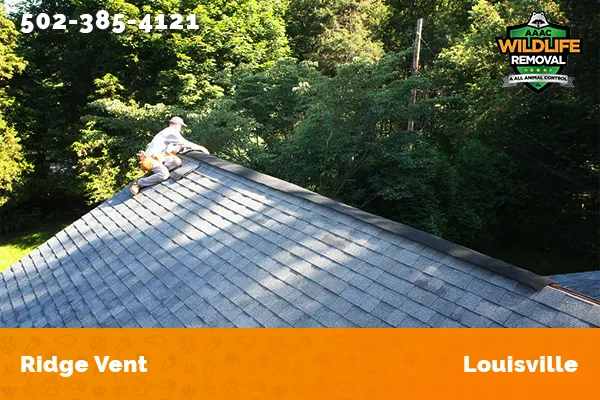
Ridge Vents
Bats often enter attics through the Ridge Vent, which is a metal strip running along the roof’s edge. Ridge Guard is a product that seals any openings at the vent. Once the vents are sealed, we can do a complete roof repair to make sure your house is animal-proof. If you take photos of the roof, we can give you an idea of whether or not your ridge vents are open to animals.

Gable Vents
Gable vents on many homes are a common entry point for wildlife, including squirrels and raccoons. These vents provide airflow to your attic during hot weather. They may be covered or have a small flap which can be easily pried open with an animal’s paw. A wire mesh can be placed to allow airflow, but prevent animals from entering these vents. We can also secure the vent flaps and replace any rotted wood that may have allowed an opening for critters to enter in the first place.

Dryer Vents
Dryer vents are a popular entryway for rodents and birds. If rodents find themselves migrating from one place to another looking for shelter and food, they will most likely use dryer vents as a way to enter your home. Dryer vents provide enough airflow to keep them alive. Therefore, it is crucial that we seal the vents and secure any openings with metal mesh.
Birds enjoy dryer vents because of the warm airflow moving through them. As birds use dryer vents to access nesting spaces, you may see an increase in your electricity bills. The best prevention is an installation of common vent guards.

Soffit
Squirrels and raccoons love getting into your attic through a damaged soffit. An experienced wildlife removal company will repair any damaged wood that has allowed wildlife to enter your attic and secure it with closures or metal mesh. Your soffit will look good as new and your rodents will be gone.

Fascia
Wild animals love to visit the fascia of a house. The fascia, if you have gutters on your roof, is the area that would be beneath the gutter. It’s a longboard covering any gap between your roof and your roofing. To prevent wildlife from using this access point, we secure all gaps with metal mesh, remove and replace any rotted wood, and then install a metal cover that prevents animal entrances but allows water to flow freely.

Eaves
Raccoons love the eaves of your house and can get in through them. Eaves are the edges of your roof where it meets the side of the house. For wildlife exclusion, our technicians can simply secure any gaps in this area using metal mesh, or we can install special eaves guards that will keep animals from entering again.
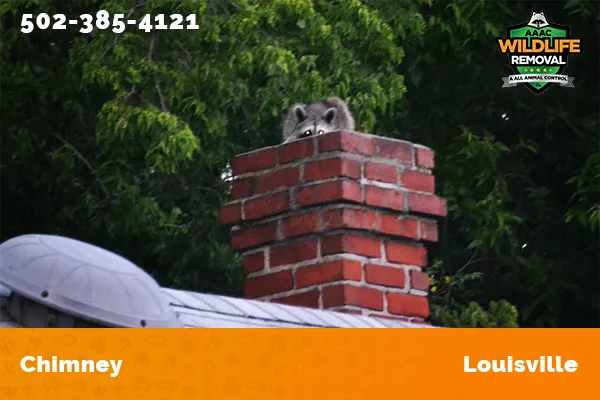
The Chimney
The chimney is a common way for animals to enter a house. We use chimney caps that will prevent this entryway, or we will remove and replace chimney liners if we need to get rid of critters that are already inside.
Bats, squirrels, and raccoons love to find a warm place to sleep inside the chimney. This is a difficult access point for animal control companies to check as fire hazards and venting are present. We will often use flameless heat detection cameras to figure out where the animals are hiding in order to remove them safely, or we can just remove the old liner and cap and then replace them.

Cracks in the foundation
Foundation cracks are a favorite entry point for rodents. To stop rodents from entering your walls, we can repair foundation cracks using a cement filler compound. This type of repair is not only animal-proof, but it also makes your home look better from the outside as well!

Exposed pipes
All rodent species love to crawl through exposed pipes to get into the walls of your home. This can be prevented by covering any gaps with metal mesh and then covering them with a cap to stop animals from getting in again.

Wildlife Damage Repair Service
After your wildlife exclusion has been completed, you need to repair any damage caused by rodents or other pests. Most wild animals will try to increase the size of their entryway to your home by digging into it with their teeth, or using their claws to scratch it. This can cause serious damage.
Our wildlife damage repairs are among the most sought-after in pest control. We have the expertise and experience in contracting and carpentry to help with any type of wildlife damage. Our contractors are capable of replacing damaged drywall or insulation with other building materials either on their own or in teams. Their knowledge and skills allow them to repair your home efficiently and quickly to reduce the possibility of further animal damage.
Learn more about Wildlife Damage Repair

Attic Restoration
Your attic could be infested by a nasty infestation and may contain urine, feces, or blood. This can create quite the stench as well as a fit environment for mold growth. Our pest control experts will replace any contaminated insulation with materials that have been treated against moisture or odor. Our pest control specialists can also replace insulation that has been chewed or torn by rodents such as rats, mice, and squirrels. We use heavy-duty staples to secure new material to your attic floor. Attics will look like new again with our attic restoration service!
Learn more about Attic Restoration
Wild animal pest control
Exclusion is a humane approach to pest control. Wildlife can be humanely trapped or encouraged to leave, then unable to get back in after their openings in the home have been sealed. This article provides some insight into professional wildlife exclusion services that can resolve problems caused by wild animals living in your home. AAAC Wildlife Removal can help you with your wildlife removal needs.

